The particular challenge facing Christians is discovering how to present Jesus Christ to people today. This theme is taken up by Dr. Luis Clavell, professor at the Pontifical University of the Holy Cross in Rome.

Throughout his extraordinary pontificate, John Paul II called on all Christians to help evangelize those countries and sectors of society where, after a long process of secularization, people no longer know Jesus Christ. Many have hardly even heard of him, and yet at the same time they feel unsatisfied by the earthly goals that popular culture sets before them. Others have heard or read something about him, but have only a superficial or inaccurate idea of him. And so the special challenge of our day lies in presenting the newness of Christ to those who think of him as an outmoded historical figure.
Pope Benedict XVI fully recognizes the importance of this challenge. We can see clearly in his homilies, speeches, and writings how he is seeking ways to help us encounter the real Christ and enter into friendship with him. As can be seen from the increasing attention paid to his words and the growing number of people coming to listen to him in St. Peter’s Square, many people, believers and non-believers alike, are responding to the Pope’s efforts. The constant lines of those waiting to pray before Pope John Paul II’s tomb also manifest a positive reaction to the call to the new evangelization, as well as the human heart’s ineradicable need for God.
Helping people to find Christ
At Pentecost, the Spirit of Truth came down upon Mary and the disciples in the form of tongues of fire. When the Apostles spoke, the thousands of pilgrims who had come to Jerusalem understood them in their own languages. Today as then, the Paraclete impels us to use arguments and language that are appropriate for each context and person. The current state of culture, politics and the media requires us to seek convincing arguments, to present ideas that are attractive and to offer positive solutions to problems. We have to give solid, understandable reasons, while speaking serenely, respectfully and pleasantly, as St. Peter recommends in his first letter:Reverence the Lord Christ in your hearts, and always have your answer ready for people who ask you the reason for the hope that you all have. But give it with courtesy and respect.[1]
Now, just as in the Church’s beginnings, only a better knowledge of the loving face of Jesus Christ and a deeper friendship with him will enable the people around us to experience the surprise of our hope-filled, joyful news. It is just this good news that will help them see that our Lord is the only one who can fill the emptiness they find in their lives.
Benedict XVI has emphasized the need to strengthen reason and the importance of Christianity’s early encounter with the Greek philosophical tradition. His first encyclical, Deus Caritas Est, is an example of his desire to reconcile reason and faith at the very core of Christianity, which is God’s love: “Faith by its specific nature is an encounter with the living God—an encounter opening up new horizons extending beyond the sphere of reason. But it is also a purifying force for reason itself. From God’s standpoint, faith liberates reason from its blind spots and therefore helps it to be ever more fully itself. Faith enables reason to do its work more effectively and to see its proper object more clearly.”[2]
Faith is seen as an ally of reason, as a transcendent ray of light, a powerful beam shining on our human intelligence. But Benedict XVI also points to the role that reason can play in assessing the soundness of the various religions. Since reason is open to transcendence, to the pursuit of truth, it provides (from the Christian standpoint) a basis for dialogue with other faiths. Moreover, it is a key instrument in preventing religion from degenerating into superstition. Therefore one can say that reason belongs to the very core of a theologian’s work and to a Christian’s life of theological faith. In this vein, the Pope quotes Emmanuel II Paleologus: “not to act in accordance with reason is contrary to God’s nature.”[3]
Reason takes on a much broader reach in the light of Christian revelation, which teaches that in the beginning was the Word, the Logos.[4] Reason is not restricted to material realities. Its openness to the truth includes mankind’s deepest questions, and it can even purify the way one lives one’s faith.[5] Faith and reason “are like two wings on which the human spirit rises to the contemplation of truth.”[6]
Broadening the horizons of reason: a task for universities
In clarifying the relationship between reason and faith, Christians have to take into account all the diverse fields of knowledge. Modern science is characterized by specialization, which has led to dramatic scientific progress in the past hundred years. However, scientists are often led by the very work they do to raise questions that cannot be answered by their own methods of investigation. Thus there is a need for cooperation between experts in the various branches of knowledge, so that by uniting their insights they can reach a new synthesis.
The task of finding a new harmony between faith and reason falls especially to universities. A university should be “a vast laboratory where, in accordance with the different disciplines, ever new areas of research are developed in a stimulating confrontation between faith and reason…Is this not an exciting adventure? For one discovers, moving within this horizon of meaning, the intrinsic unity that links the different branches of knowledge: theology, philosophy, medicine, economics, every discipline, even the most specialized technologies, since everything is connected.”[7]
“ONLY A BETTER KNOWLEDGE OF THE LOVING FACE OF JESUS CHRIST AND A DEEPER FRIENDSHIP WITH HIM WILL ENABLE THE PEOPLE AROUND US TO EXPERIENCE THE SURPRISE OF OUR HOPE-FILLED, JOYFUL NEWS.”
The university brings together all the various disciplines into a synthesis wherein one can see the link between the growth of human persons and the plan of the divine creator. Research—like any other honest human work—enriches our life in the world, while at the same time it represents each generation’s commitment to the future.
Benedict XVI suggests a path for bringing about this great adventure of cultural synthesis: “Modern scientific reason quite simply has to accept the rational structure of matter and the correspondence between our spirit and the prevailing rational structures of nature as a given, on which its methodology has to be based. Yet the question why this has to be so is a real question, and one which has to be remanded by the natural sciences to other modes and planes of thought—to philosophy and theology.”[8] Therefore those working in the diverse branches of knowledge need to open themselves up to a higher realm of knowledge that sheds light on their results and unifies them. The world becomes intelligible only when man’s mind grasps this unity, but for this our minds have to open themselves to a transcendent sphere that reveals the ultimate meaning of our existence.
At the same time, this universal openness of reason implies that theologians and philosophers should not cut themselves off from the other sciences and branches of knowledge. Philosophy, and especially metaphysics, uses the knowledge gained by the other disciplines; it examines their premises, attempting to clarify and justify them. While appropriate for studying fundamental questions, the knowledge gained by theology and philosophy never renders other types of knowledge superfluous.[9] Moreover, the openness of reason requires that philosophy and theology reflect on other dimensions of human life, including the great religious experiences. “It is to this great logos, to this breadth of reason, that we invite our partners in the dialogue of cultures. To rediscover it constantly is the great task of the university.”[10]
A personal synthesis, based on unity of life
The link between faith and reason is found not only in the university. In the teachings of John Paul II and Benedict XVI we can see a call from God’s Providence to express better the harmony between faith and reason. Responding to this call means cultivating our own formation and considering how our faith illumines our minds in our daily lives. We are being asked to take the steps needed to make our reason truly Catholic.
In St. Josemaría’s words, a genuinely Christian mind should possess “a breadth of vision and a deepening insight into the things that remain alive and unchanged in Catholic orthodoxy; a proper and healthy desire, which should never be frivolous, to present anew the standard teachings of traditional thought in philosophy and the interpretation of history; a careful awareness of trends in science and contemporary thought; and a positive and open attitude towards the current changes in society and in ways of living.”[11]
Since not everyone has the same opportunities to deepen their cultural formation, nor the same abilities and interests, these words will apply to each one in differently. But they should spur all of us to consider what steps we are taking in our effort to understand the problems of our times better, and to make a more decisive contribution to solving them. A solid understanding of the rational dimension of our faith is a basic part of every Christian’s theological training, and certainly an important part of the “gift of tongues” that St. Josemaría wanted the modern apostle to have.[12]
Good, high-quality reading can be very helpful here, since it provides a good way of broadening the horizons of our formation. Reading supplies us with reasoned arguments, useful information, effective expressions; it guides our feelings and affections. Calm, attentive reading spurs us to form new undertakings and helps us to arrive at truer judgments of the often fragmentary information that reaches us through the media. One’s lifestyle, however, can easily hinder one’s reading of quality literature or works of serious intellectual content. Because of the intensity of their work, many people seek purely passive kinds of relaxation like watching television or reading escapist-type novels.
Thinking of future generations, we should consider the fact that the level of culture for a given person or for society in general depends in large part on the surroundings in which one is brought up. In order to rehabilitate reason and employ it in harmony with the faith, it is essential that a person’s earliest upbringing and education help them to appreciate the beauty of goodness, of virtuous behavior and of well-finished work. It will depend on parents, teachers, and friends whether or not young persons develop a taste for reading early on and fully develop that participation in the divine Logos which is their intellect.
Another element of a universal mentality is a positive and open attitude towards currents of contemporary thought. To help people discover that Christ is the answer to their concerns, we have to manifest a genuine interest in their problems and in the solutions they propose, however mistaken they may seem to us. A person with a genuinely catholic, universal mentality is able to analyze and discuss the other person’s position respectfully and without ridiculing it, taking it seriously and finding its positive aspects.
“SINCE REASON IS OPEN TO TRANSCENDENCE, TO THE PURSUIT OF TRUTH, IT PROVIDES A BASIS FOR DIALOGUE WITH OTHER FAITHS. MOREOVER, IT IS A KEY INSTRUMENT IN PREVENTING RELIGION FROM DEGENERATING INTO SUPERSTITION.”
Calm examination of opposing arguments helps us to formulate questions for ourselves and to develop our own ideas more seriously. This is a mode of reasoning that Pope Benedict XVI often employs. To omit this first step might lead our hearers to accept something but without internalizing it, or to decide, perhaps rightly, that the solution we propose does not really address their problem. Arguments based solely on authority carry little weight and actually in most areas are insufficient. In contrast, entering into the other person’s arguments enables us to highlight their limitations, at the right moment and with well-grounded objections. Without a true “disinterested interest” in the other person born of love, we will never come to understand that person in depth, as he truly is. Only love truly understands what is specific and individual.
Harmony between reason and faith in public life
By using our reason to lead others to the truth with convincing arguments, we will lose any fear of speaking about God in the professional and public sphere, and extend our apostolate outside the bounds of our private life, of our family and friends. Present-day culture makes it necessary for Christians to take part in public debates on topics of general interest, and, when they do so, to show their unity of life by standing up for what they believe in. This will enable them to carry on a genuinely serene, reasonable discussion, employing polite language that contributes to peaceful exchanges.
In some places today people aim to base political debate on a sort of relativism that discounts in advance any transcendent concept of the human being. This attitude is often linked to the notion of tolerance, as if to say that belief in God makes it impossible for anyone to understand the problems and needs of people with no faith; or even that in dialogue believers always aim, perhaps unconsciously, to impose certain purely subjective convictions.
However, relativism is not a condition for progress, nor is it the result of greater respect for freedom. This is clear from a rapid glance at history, which shows the decisive contribution of Christianity to the discovery of human dignity, confidence in reason, and the values of free co-existence and interaction.
Faith has lost none of its power to foster progress. Therefore, when confronting a society that relegates religion to the private sphere, Christians cannot let themselves be ruled by discouragement or the temptation to hide their beliefs. That would be a sign of lukewarmness and comfort-seeking, and, ultimately, of a failure to grasp the deep relationship between reason and faith.
Political dialogue demands combining efforts to construct the common good. It calls upon each person’s initiative, suggestions and solutions for society’s problems. In this regard the Church’s social doctrine offers “a humanism that is up to the standards of God’s plan of love in history, an integral and solidary humanism capable of creating a new social, economic and political order, founded on the dignity and freedom of every human person.”[13] If we fail to make our voices heard against the reigning relativism, we will not only be renouncing this Christian concept of man, but we will be unfaithful to our own deepest convictions, and thus deprive others of our personal contribution to the common good.
The Church does not aim to impose her faith on those who do not share it. But even non-believers can recognize at least in part the truth of her understanding of man. One way the Church contributes to civil and political life is by offering rational arguments: “It must not be forgotten that, when Churches or ecclesial communities intervene in public debate, expressing reservations or recalling various principles, this does not constitute a form of intolerance or an interference, since such interventions are aimed solely at enlightening consciences, enabling them to act freely and responsibly, according to the true demands of justice.”[14]
Usually it will not be official Church institutions that intervene in public debate. Rather it will be left to each of the lay faithful to take “all the concrete, theoretical or practical decisions which he considers in conscience to be most appropriate and most in agreement with his own personal convictions and aptitudes. For example, decisions referring to different philosophical or political views, to different artistic or cultural trends, or to the problems of professional and social life.”[15]
Each person has to consider responsibly, in God’s presence, how he or she can cooperate in building up a more just social order, one that gives the best possible expression to human dignity.
Even though politicians are more directly committed to fostering the common good, this task is not reserved exclusively to them. All Christians are called to cooperate in furthering social development, in accord with their own circumstances. A few of the many forms this cooperation may take are: setting an example of justice in one’s own professional work; assisting in cultural or social projects; intervening in the media; participating in professional associations or conferences.
There are many possibilities here, and each person one will find his or her own way to contribute. In many cases, what we will have to make clear—taking into the account the particular audience we are addressing—is that without reference to Jesus Christ it is impossible to understand the true significance of the situation under discussion. We must help people see that every question has an answer from within a Christian perspective, even if, at times, it may not be easy to formulate it.
In this new evangelization, Christians make the grace of their Baptism bear fruit. Knowing that they share in Christ’s royal, prophetic and priestly mission, they trust in him to give effectiveness to their efforts. Each believer, sent to work in the vineyard by the One who knows it best, hears with new force the words of John Paul II: “Do not be afraid! Open wide the doors to Christ! Open to his saving power nations, political structures, and economic systems. Open to his power all the vast fields of culture, civilization and development. Do not be afraid! Christ knows ‘what is inside a person’. Only he knows! [16]
Luis Clavell in Opusdei.us
Footnotes
1. Petr 3:15-16.
2. Benedict XVI, Encyclical Deus Caritas Est, 28.
3. Benedict XVI, Lecture at the University of Regensburg, 12 September 2006.
4. Cf. Jn 1:1.
5. Cf. Benedict XVI, Lecture at the University of Regensburg, 12 September 2006.
6. John Paul II, Encyclical Fides et Ratio, preface..
7. Benedict XVI, Speech at the Catholic University of the Sacred Heart, 25 November 2005.
8. Benedict XVI, Lecture at the University of Regensburg, 12 September 2006.
9. Cf. St. Thomas Aquinas, Super Boethium De Trinitate, III, q. 5, a. 1, ad 6.
10. Benedict XVI, Lecture at the University of Regensburg, 12 September 2006.
11. Furrow, 428.
12. Cf. Furrow, 430 and 899.
13. Pontifical Council for Justice and Peace, Compendium of the Social Doctrine of the Church, 19.
14. Benedict XVI, Speech to the Members of the European People’s Party, 30 March 2006.
15. Conversations with Msgr. Escrivá de Balaguer, 12.
16. John Paul II, Homily, 22 October 1978. Quoted in the Apostolic ExhortationChristifideles Laici, 34.


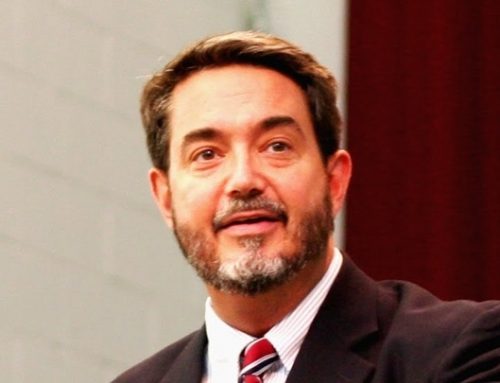
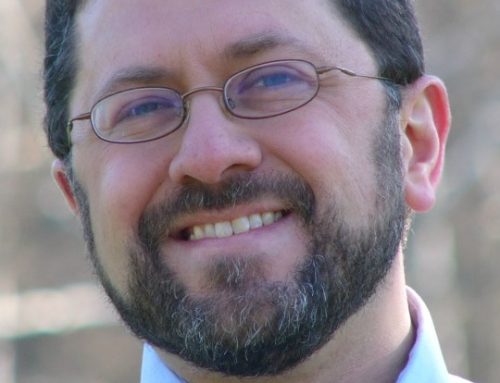
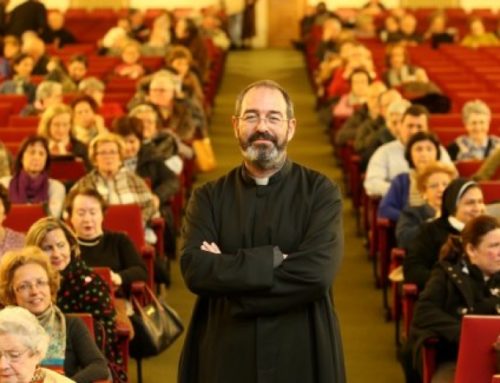
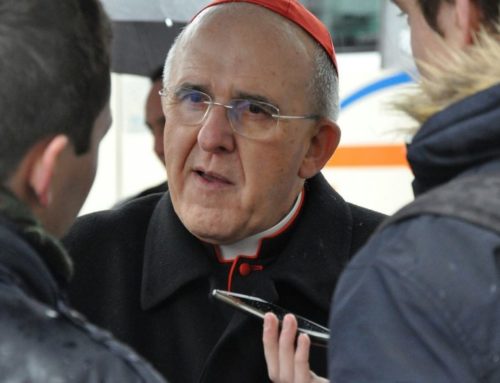
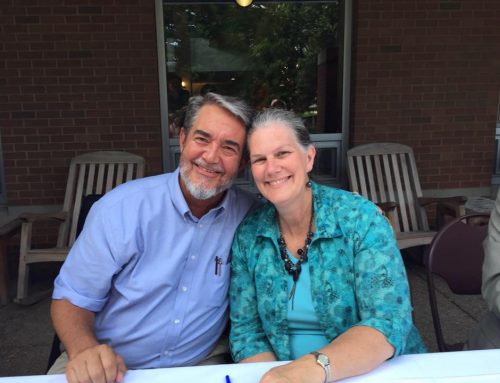
Leave A Comment
You must be logged in to post a comment.